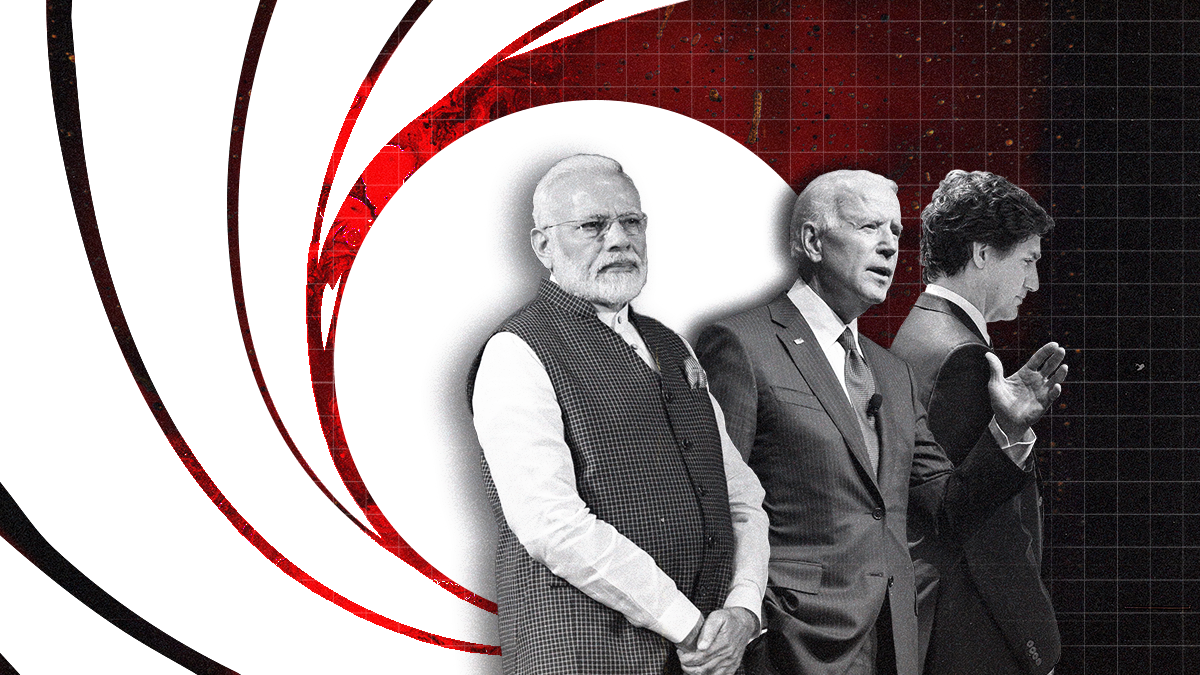Before Narendra Modi became prime minister, he said India should be quicker to kill terrorists outside its borders – carrying out extrajudicial assassinations on foreign soil, giving his spies the license to kill, James Bond-style.
An indictment unsealed in New York on Wednesday suggests that Modi did do that, and then angrily denied responsibility for an assassination in Canada.
Modi is popular enough in India that this should not dent his popularity or threaten his reelection bid next spring, but the news raises challenges for him internationally, not least with Canada, whose leader has been vindicated.
The US indictment alleges that on June 9 an Indian national, Nikhil Gupta, arranged for a payment of $15,000 to an American hitman to carry out a $100,000 murder contract on Gurpatwant Singh Pannun, a Sikh separatist leader who lives in the United States. The problem for Gupta, and Modi, is that the “hitman” was an undercover officer with the US Drug Enforcement Agency.
Eight days later, Hardeep Singh Nijjar, a Canadian Sikh separatist leader, called Pannun, who was his lawyer, to tell him that the Canadian Security Intelligence Service had just warned him his life was in danger. The next day, Nijjar was gunned down by a team of killers outside his gurdwara in Surrey, B.C. That night, the indictment says, Gupta sent a video of Nijjar’s bullet-riddled corpse to the fake hitman he had hired.
The next day, he messaged again — “we have so many targets” — and urged him to take out Pannun.
Gupta was arrested in the Czech Republic later in June on murder-for-hire charges.
The indictment alleges an Indian government official — presumably a senior spy — “directed the assassination plot from India” and that three more assassinations were planned in Canada.
This indictment makes everything that India has said since look ridiculous. When Justin Trudeau announced in September that Canada suspected Indian involvement in Nijjar’s death, Modi’s government responded with furious denials and expelled 41 Canadian diplomats. India’s media attacked Trudeau, even accusing him of being coked out in New Delhi for the G20 meeting, an entirely made-up allegation that nonetheless went viral around the world.
Joe Biden’s government was put in an awkward position by Trudeau’s accusation. Washington confirmed that it had intel that seemed to back Trudeau’s claim but also sought to calm tensions between its closest ally and India, whose cooperation it needs in containing China.
Behind the scenes, the Americans were exasperated, says Pramit Pal Chaudhuri, Eurasia Group’s practice head for South Asia, who lives in New Delhi. “I’ve heard that the Americans have yelled at both sides and said the world has some serious problems going on right now. This is just bullshit. Let’s get this off the table very quickly.”
But India kept applying pressure to Canada, motivated by long-standing resentment of Canadian inaction on Sikh separatism.
Both Nijjar and Pannun had been helping organize a diaspora referendum calling for the creation of “Khalistan,” a majority Sikh state in northern India, which enrages the Indian government. There is little support for that idea in India, but it lives on in the hearts of Sikhs around the world, and India believes Canadian Sikhs finance terrorist attacks in India.
A Canadian inquiry into the 1985 Air India bombing, which killed 329 people, blamed poor intelligence and policing for failing to prevent it, and nobody was ever convicted. India regularly complains that Canada does not do enough to crack down on separatists, alleging, for instance, that Nijjar was running a terrorist training camp. They accuse the Liberals of failing to crack down because they need Sikh votes.
India has legitimate complaints, but it now seems clear that Trudeau was entirely right and Modi entirely wrong about who was responsible for killing Nijjar.
It is easy to understand Trudeau’s moves now. He came under heavy criticism for taking the impolitic position he did, instead of trying to resolve the matter quietly, but he knew all along he would be vindicated. It’s much harder to understand Modi’s moves, especially after Gupta was arrested, and after both Trudeau and Biden raised this issue with him at the G20 meeting in September. How did he think this would end?
Biden has invested a lot of time and energy in wooing Modi, cultivating him as a crucial Asian ally in the soft-power struggle with a rising China. Wednesday’s news will inevitably raise questions about how useful an ally he can really be.
But India has now promised to investigate the matter. “The Biden administration is pushing the Indian government to make a commitment not to carry out such targeted killing on ‘friendly soil’ and against citizens of friendly countries,” says Chaudhuri.
“I suspect they have already told the Indians in no uncertain terms that this cannot happen again,” says Graeme Thompson, a senior analyst with Eurasia Group's global macro-geopolitics practice. “But Washington needs New Delhi on a range of high-priority issues, and New Delhi knows that.”
Despite this ugly business, the Americans have continued to engage on all fronts and will keep doing so. The same day the indictment came down, NASA announced it would train an Indian astronaut.
Biden is signaling that India and the United States need one another so much that the relationship will continue to deepen, whether or not Modi reins in his bumbling assassins.






